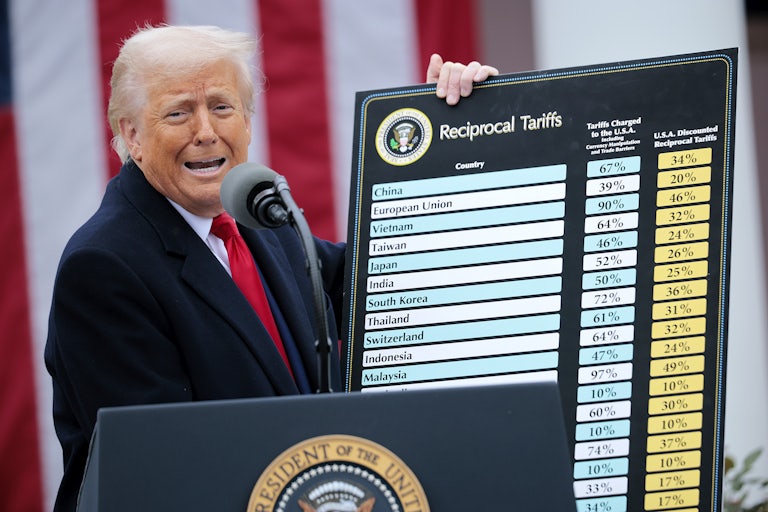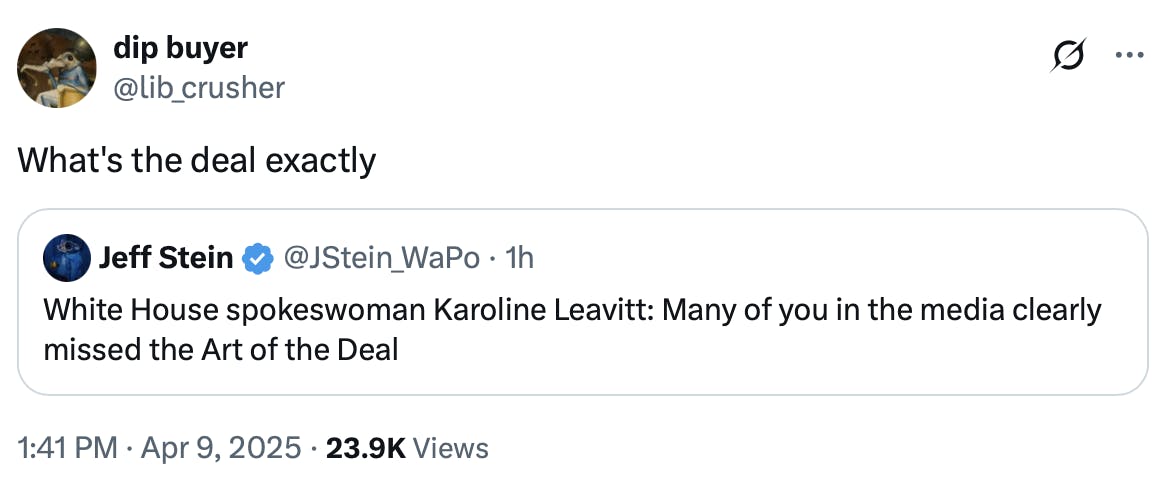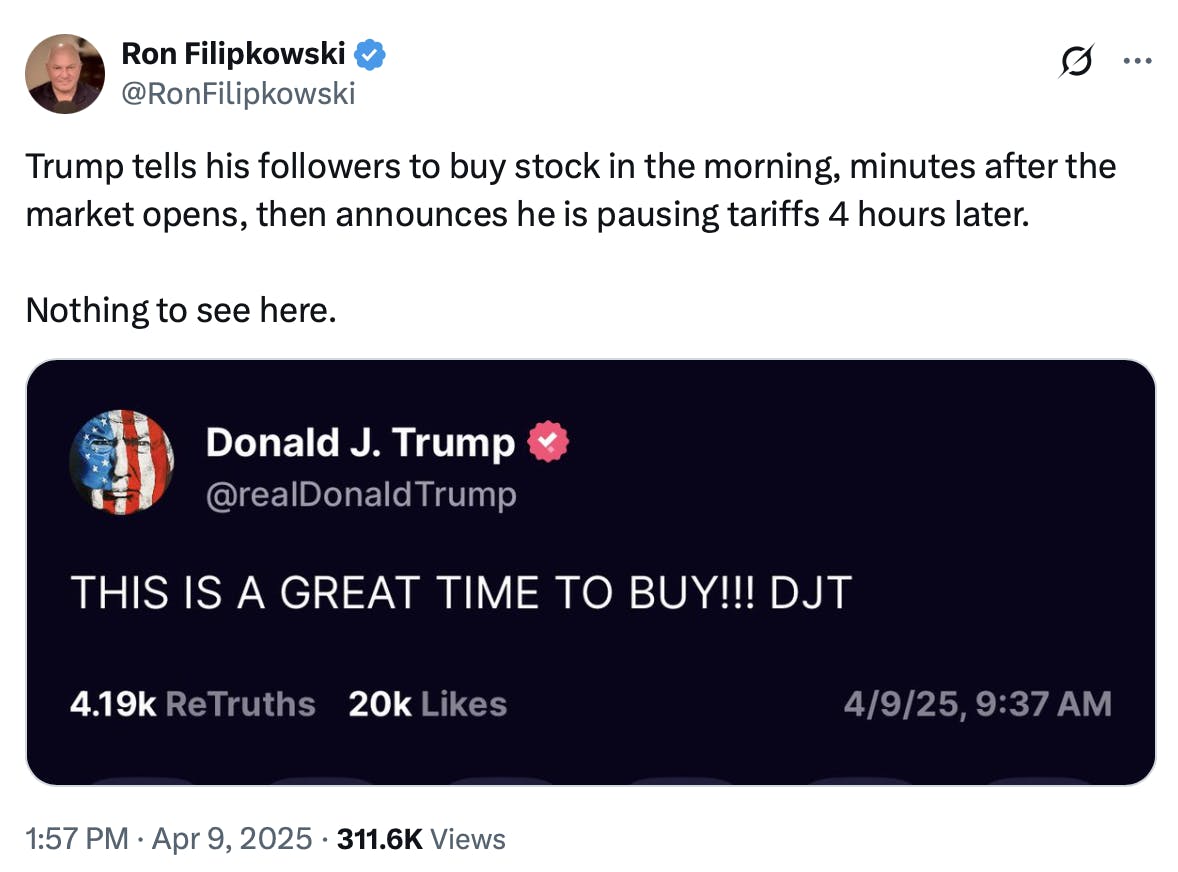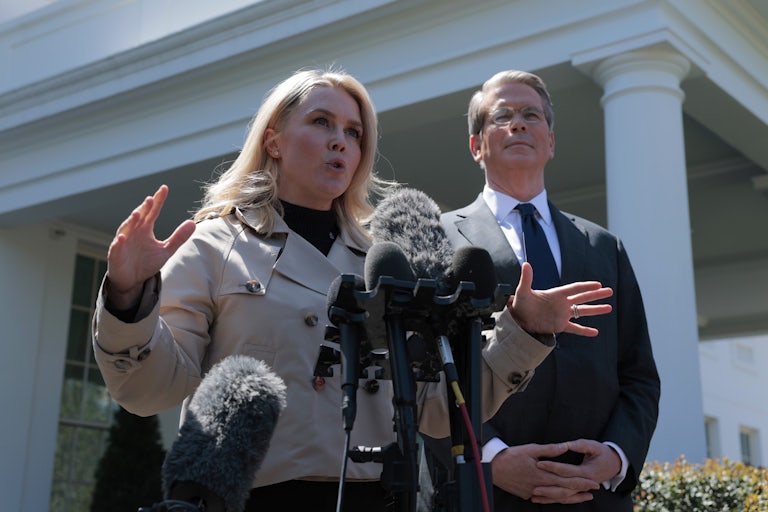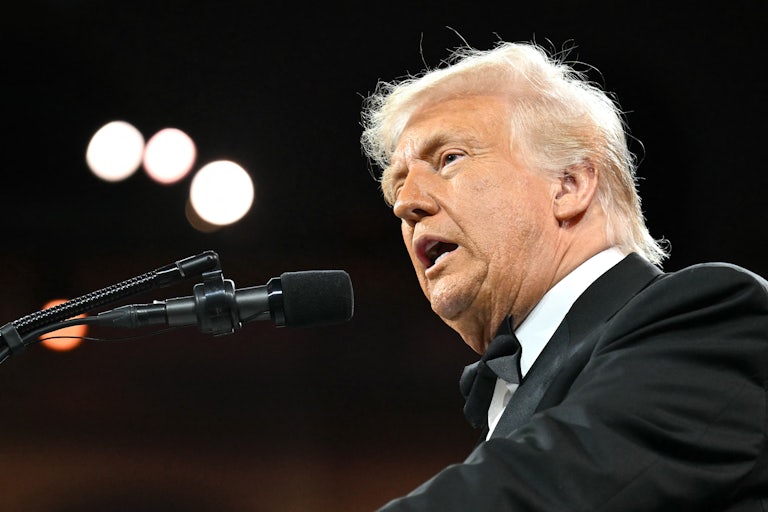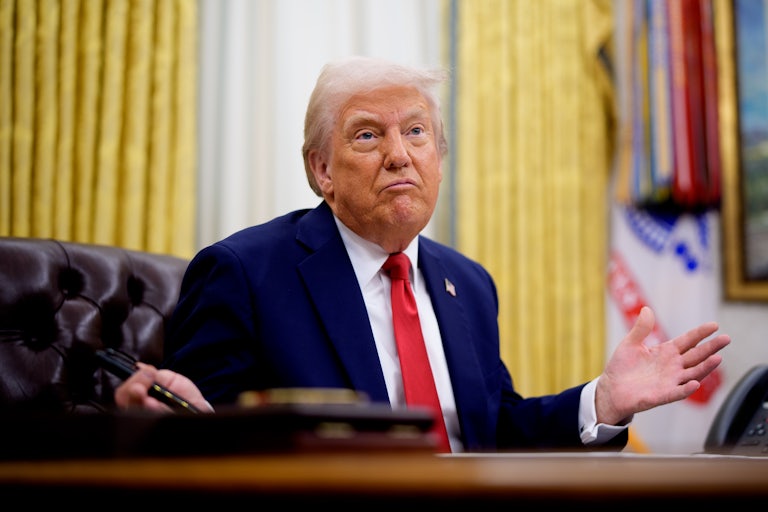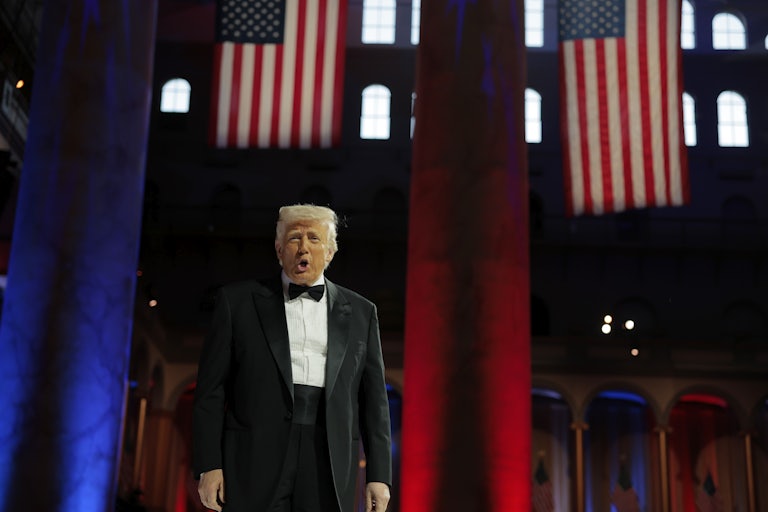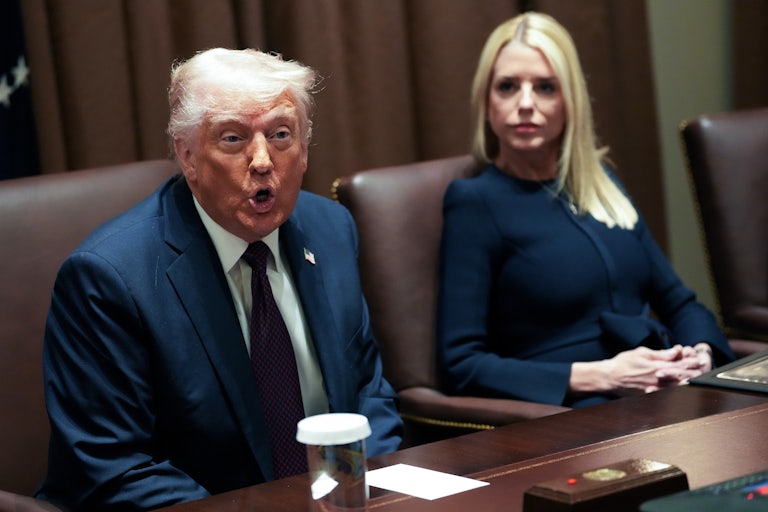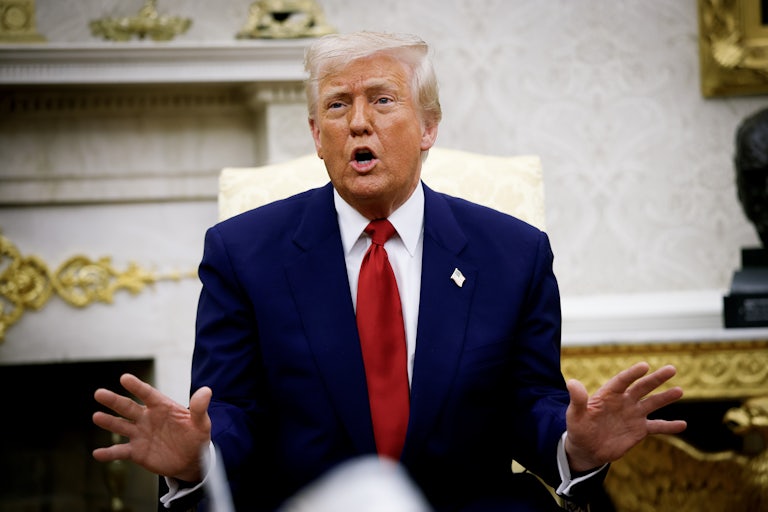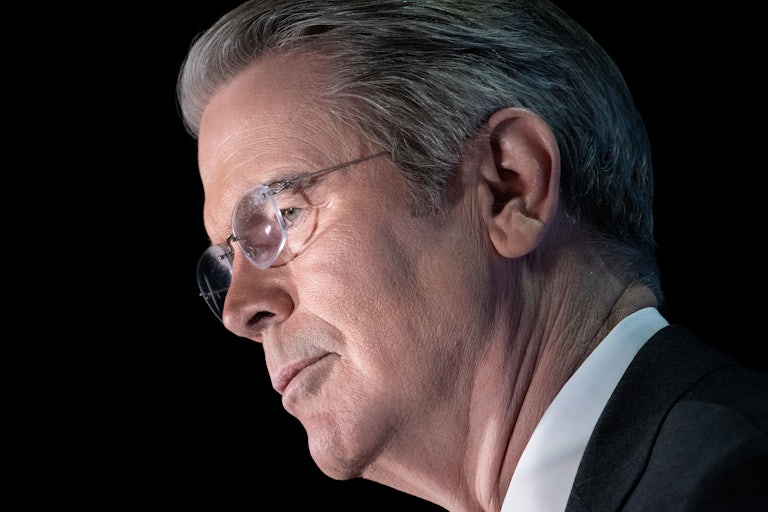Trump’s Tariffs Whiplash Is Open Corruption. He Admitted It Himself.
Trump posted a message to his followers just before pausing the bulk of his tariffs.
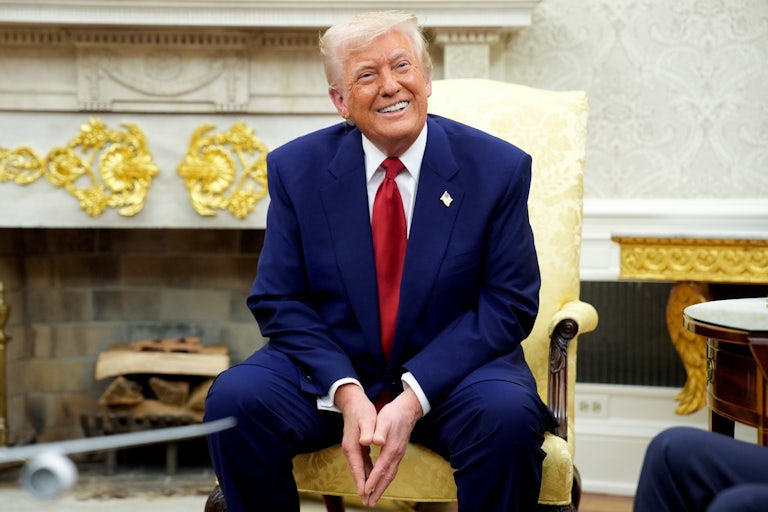
Trump may have accidentally confessed to insider trading and market manipulation on Truth Social.
“THIS IS A GREAT TIME TO BUY!!! DJT,” the president wrote on Wednesday, a mere four hours before announcing a 90-day pause on most retaliatory tariffs except for China, yet another market-shocking announcement that caused stocks to shoot up.
Insider trading is a very illegal practice that involves using special or private information to give yourself an advantage in buying and selling stocks. Someone with knowledge of an economic policy change that would cause the markets to shoot back up would be posting about how great a time it is to buy right before the policy change happened. This particular situation looks like the opposite of a pump and dump: a poop and scoop. This is when an exclusive group of people with private knowledge do whatever they can to drive stock prices down—like announcing debilitating global tariffs—and then buy stocks up strategically before the price goes up again. And with this administration, the corruption is completely out in the open.
“Trump is creating giant market fluctuations with his on-again, off-again tariffs. These constant gyrations in policy provide dangerous opportunities for insider trading,” Senator Adam Schiff wrote on X. “Who in the administration knew about Trump’s latest tariff flip flop ahead of time? Did anyone buy or sell stocks, and profit at the public’s expense? I’m writing to the White House—the public has a right to know.”
“Trump’s Truth Social now basically promotes veiled insider trading on upcoming announcements,” wrote health and economics expert Eric Feigl-Ding. “Trump’s benefactors are gleefully watching.”
The New York Times’ Andrew Ross Sorkin called it two days ago on CNBC. *
“Given what the government’s been doing, and what this administration’s been doing, it would not shock me—and I hate to speculate—if we were to find out that a whole bunch of people who work in Washington as our elected leaders … ultimately sold stocks last week, or potentially worse than that, shorted the market.”
The Trump administration—after crashing the global stock market and eroding U.S. legitimacy—is attempting to spin this as a win.
“Many of you in the media clearly missed The Art of the Deal,” White House press secretary Karoline Leavitt said.
* This article originally misstated Sorkin’s first name.
